How to start a conversation about mental health with your children
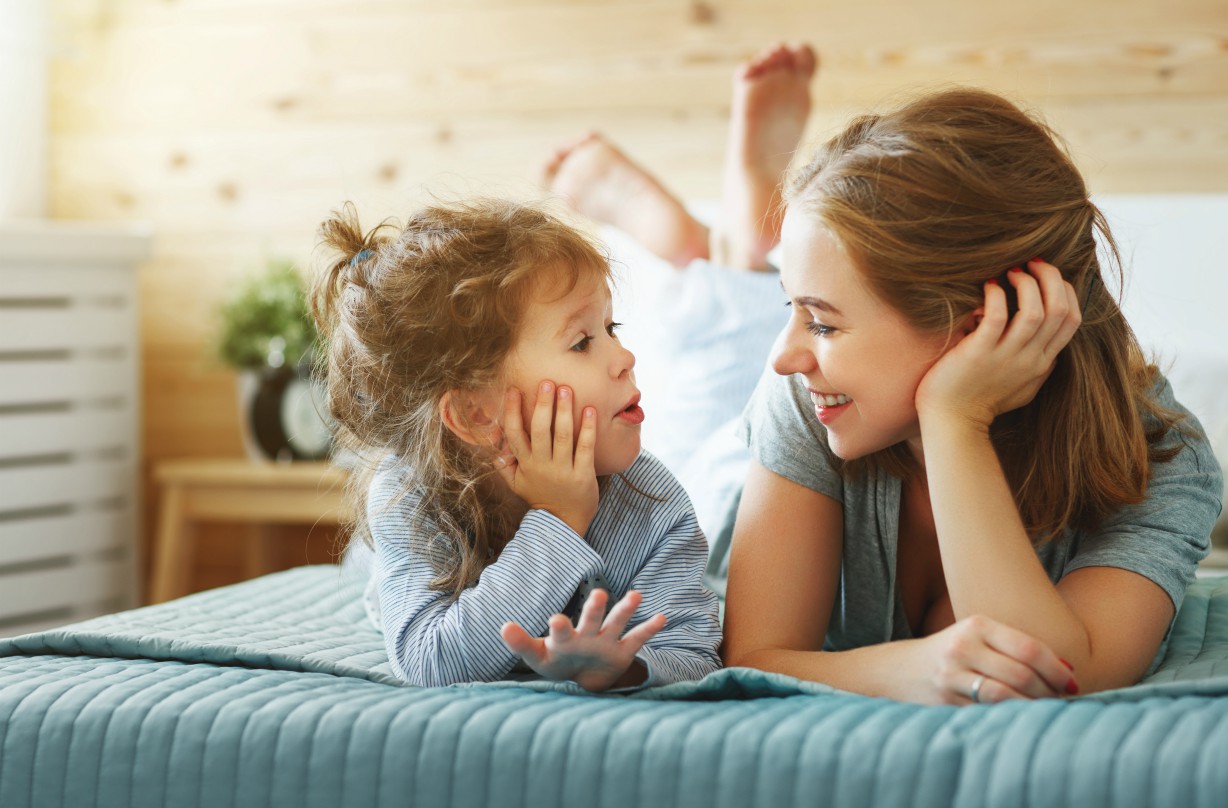

With social media influences, online bullying and exam expectations, it seems children are under more pressure now than ever before. But, how’s it affecting children's mental health – and how can you talk to your children if you have concerns?
Discussing your children’s mental health with them can seem like a daunting prospect. But broaching the subject can help children feel comfortable talking about their feelings, emotions and worries later in life - and help to teach them emotional intelligence.
One in eight children in the UK now have a diagnosable mental health disorder, according to research from YoungMinds - that's roughly three children in every school classroom. Shockingly, suicide was the most common cause of death for boys (16.2 per cent of all deaths) and girls (13.3 per cent) aged between five and 19 in 2017.
February 6th marks Time To Talk Day - an initiative designed to get more people opening up about mental health. There's a selection of online resources designed to help start these important discussions, which can sometimes feel awkward - especially with teenagers.
GoodtoKnow spoke to Child and Adolescent Psychiatrist Dr Maite Ferrin and Nick Harrop, Campaigns Manager at mental health charity YoungMinds, about how best to start the conversation with your kids about mental health.
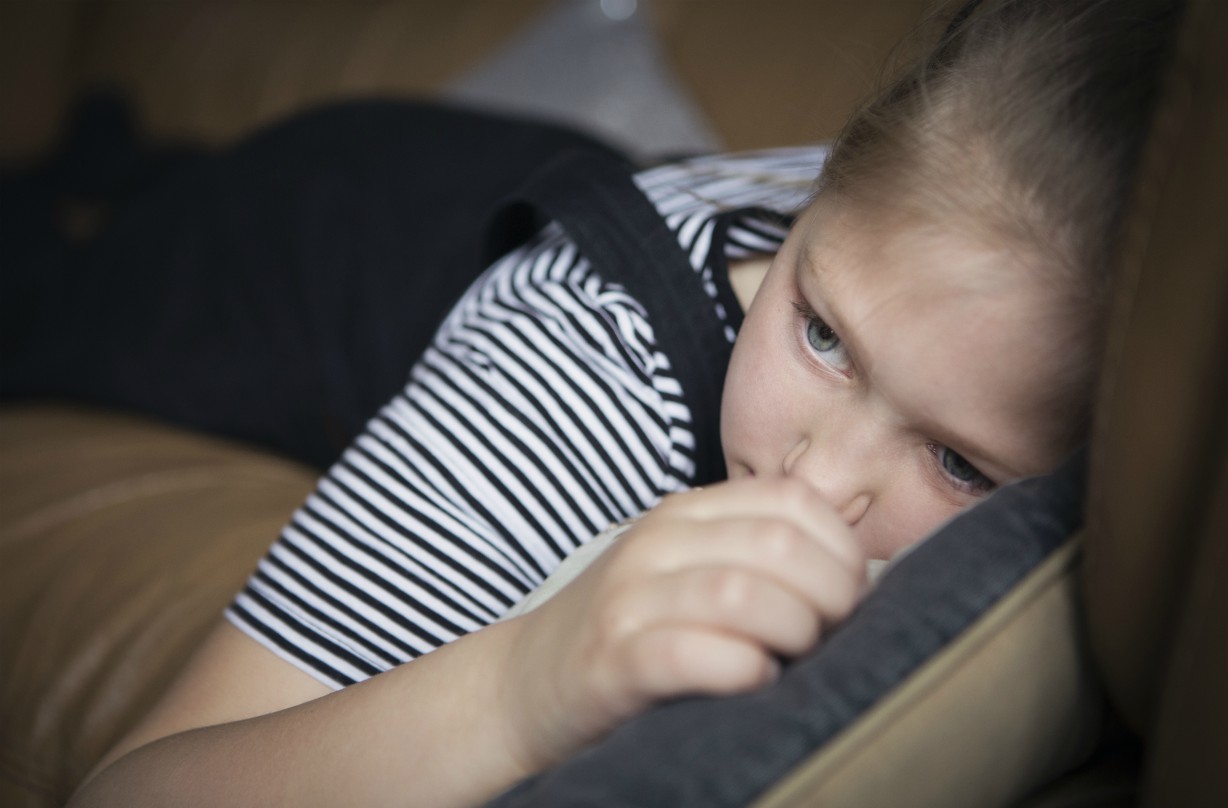
Child mental health issues: common causes and warning signs
According to mental health charity Young Minds, the most common mental health issues and symptoms affecting children are anxiety, bullying, problems at school, exam stress and body image issues.
Anxiety in children
Anxiety disorders usually begin in adolescents. Research carried out by the Department of Health and Social Care found that one in six young people will experience an anxiety condition at some point in their lives. This means that an average of five people in your child's school class may be suffering from anxiety.
GoodtoKnow Newsletter
Parenting advice, hot topics, best buys and family finance tips delivered straight to your inbox.
There are different types of anxiety, and many children and teens experience more than one type whether that be OCD (obsessive compulsive disorder), social anxiety, health anxiety and shyness, exam stress, worry or panic attacks.
Your teen may be experiencing frequent and uncontrollable worries about anything in their day-to-day lives from exam stress and making friends at school, to body image issues. Anxiety feels different for everyone but common anxiety symptoms to look out for in your teens are restlessness, trouble sleeping and feeling sick.
Children and teenagers with depression
Depression in children and teens can be caused by family difficulties, bullying at school physical and emotional abuse and, a family history of depression. Researchers from University College London and the University of Liverpool found that 24 per cent of 14-year-old girls and nine per cent of 14-year-old boys are depressed.
According to the NHS, symptoms of depression in children often include sadness, or a low mood that doesn't go away, being irritable all the time, not being interested in things they used to enjoy and feeling exhausted.
Teen pressure and stress
Exam stress and pressures at school can cause young children and teens to feel stressed, anxious or depressed, and this might affect their eating and sleeping habits. There is a lot of pressure for kids at school including pressure to get good exam results, finding school work difficult, not getting on with teachers and finding trouble building relationships with friends.
According to Young Minds, if your child is stressed you may notice changes in their behaviour, they may not want to take part in activities they usually enjoy, refuse to go to school or behave aggressively.
Bullying and cyber-bullying
According to Young Minds bullying affects over one million young people every year. Bullying is a common experience for many kids at school - whether they’re being bullied themselves or if they are bullying someone else.
Bullying can come in different forms including physical, verbal and often anonymous cyber-bullying. If your child is being bullied, they may feel worthless, lonely, and lack confidence. In some cases, bullying can lead to mental health issues such as anxiety and depression, as well as other self-destructive behaviour such as alcohol, drugs and self-harm.
If you think your child may be being bullied, look out for changes to their behaviour. For instance, do they returned from school with bruises, do they frequently have their bus money stolen, have they changed their eating habits or have their school grades slipped.
Why should we talk to children about mental health?
Talking mental health to children can potentially be challenging, as they may not understand understand mental illness, therefore it’s important to tailor the conversation to their age. It's crucial children and young people understand that mental illness is just as real as a physical illness.
Dr Maite told GoodtoKnow, ‘Mental health is linked to and not separated from physical health, we should encourage our children to keep a healthy mental and physical style of life.
‘We can discuss the variety of feelings and emotions with children and how we can identify mental health problems, or strategies about how to deal with our anxiety or anger in a healthy manner. We should also teach our child how to prevent stress and how to recognise the early physical symptoms in our body. At the same time we should encourage routines that promote physical wellbeing (e.g. healthy eating, sleep, exercising) as this will have a direct impact on our mental health.'
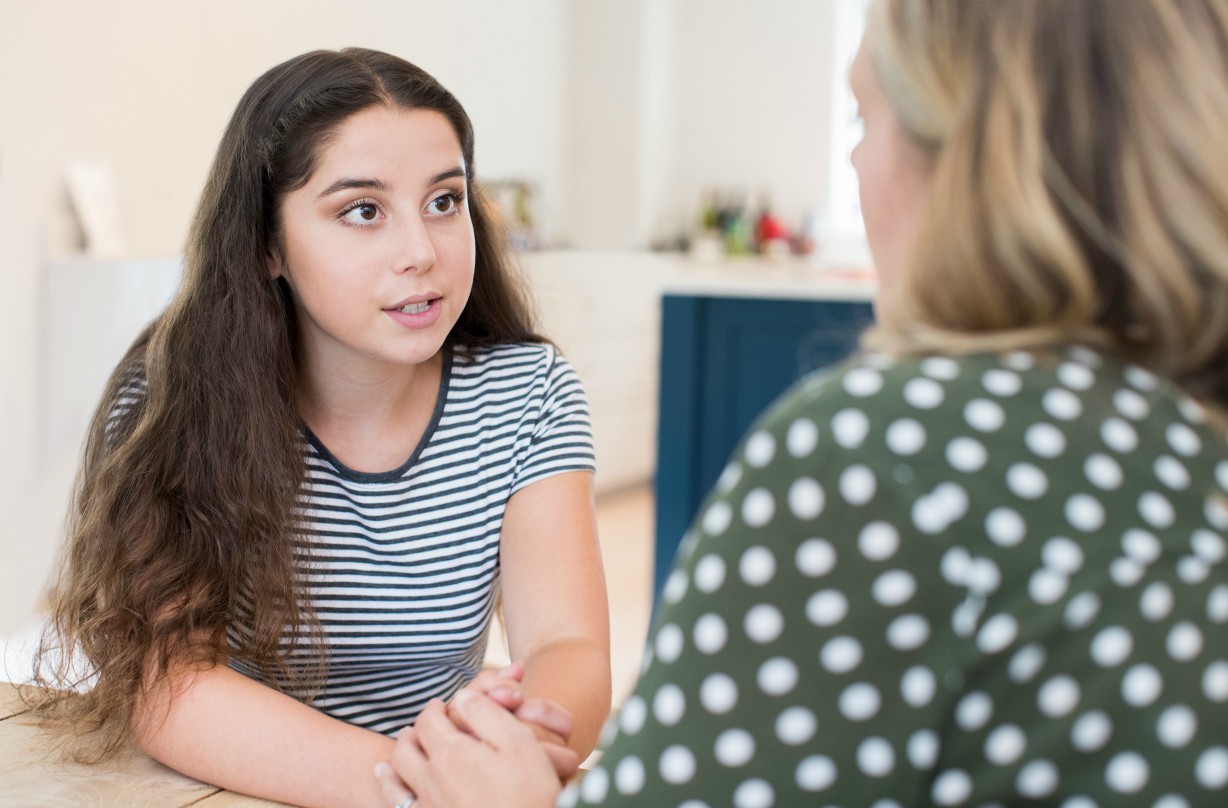
When to talk to your children about mental health?
Having regular conversations about children's mental health, feelings and emotions in a relaxed environment can help parents provide support to their children.
Dr Maite said, ‘There is not a minimum age when we can start talking about mental health with our children. Mental health should be considered something as natural as talking about healthy eating and exercising, and it should be considered as part of our daily routine.’
Nick Harrop said, ‘It can help to have regular conversations about how your child is feeling and the pressures the face when you’re doing something you both enjoy – whether that’s baking a cake or kicking a ball around.’
Ideas to get the conversation started about children's mental health
It can be hard to start a conversation about mental health with your child, particularly if your child has trouble expressing their emotions. These conversation starters should help you ease into the conversation.
Start with a story
Stories are a great way to tackle talking about difficult subjects.
You can even use examples from story books, movies or celebrities to make the issue more relatable.
Try conversation starters
- How are you feeling today?
- What was the best and worst bit of your day?
- Do you want to talk about what's going on at school?
Pick the right opportunity
You will be able to spot changes in your child's mood and know when is the best time to approach a difficult topic such as mental illness with them. Nick Harrop said, 'You’re the leading expert when it comes to your child, so you can tell when they aren’t in the mood to talk, or when they aren’t responding to your attempts to strike up a conversation. Reassure them that if they don’t feel like talking now, they can always talk to you at any other time.'
If your child struggles to talk about their mental health with you it's important you act quickly to find a suitable alternative such as a school teacher, a family GP, counsellor or child psychologist.
Make the conversation age-appropriate
It's important to make the conversation about mental health age appropriate. The way you talk to a seven-year-old about mental health will be different to the way you approach the conversation with a teenager.
Try and explain symptoms in an age appropriate way. For example, explain to a young child that everyone feels sad sometimes. Make your child feel comfortable and pave the way for them to open up to you about their problems. Additionally, get down to your child's level when speaking to them. Crouching down and engaging with your child signals to them that you are actively listening.
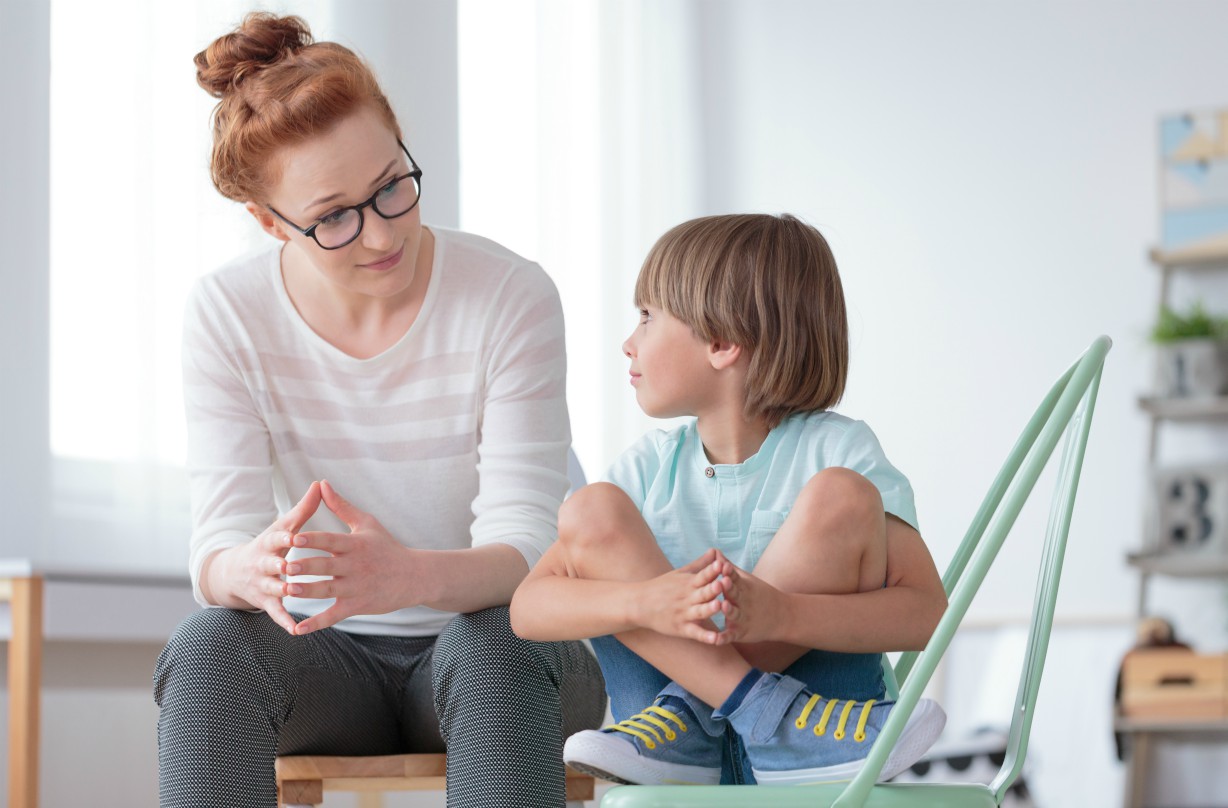
How to keep track of children's mental health
When there are problems at home or at school, such as parents fighting, a family death or bullying at school, children can become withdrawn and upset.
Dr Maite suggests, ‘Every child is different and we need to observe changes that might be very subtle but indicating that our child is struggling. Indicators such as poor sleep, anger or irritability, lack of appetite, frequent worries or physical symptoms (e.g., headaches, tummy aches) might be indicating an emotional problem or that the child is struggling.
‘Also, a sudden or gradual change in behaviour, such as defiance or isolation, might be suggesting an underlying mental health issue in your child.'
How can you nurture children's mental health?
You can promote good mental health at home by creating a happy, safe and organised family life. Ensure your child has a healthy lifestyle, with nutritious meals, enough sleep and exercise. Limit your child's screen time and be aware of who they may be interacting with on social media.
Identify any triggers of stress, anxiety and mood changes in our child. Once the triggers are identified, we should find the way of reducing or dealing with them effectively.
We should also teach our child to be able to recognise early signs of mental health issues, and to request help from others to deal with these symptoms. For instance, we can show our child relaxation techniques or meditation that can be really effective to prevent or deal with early stages of anxiety
What to do if you are worried about your children’s mental health
If you’re worried your children's mental health, it’s important to talk to them about their struggles. When you do speak to them, listen to them without judgement and make sure they know that you’re on their side and will help them get through this. Remind them that you love them and that you’re proud of them.
Dr Maite advises, ‘It is important that you liaise with child’s school and you keep the communication flowing. School may be extremely helpful to detect these very subtle changes of mood and behaviour.
‘If you and/or school have concerns about your child's mental health you should contact your GP, who will provide initial assessment and guidance about how to proceed. In addition, some schools have counsellors and can offer and good package of support for children's mental health. There might be times when school/GP recommend a referral to a child mental health specialist, this should always be considered and facilitated and never dismissed. The idea is that prevention is far more helpful than a delayed intervention.’
It is extremely hard for parents to see their children go through difficult times, and it can have a huge impact on your family. If you’re struggling to cope, speak to your GP about what support they can offer you as a parent.
If you need more support, speak to your family GP or call our YoungMinds parents helpline on 0808 802 5544 for specific advice and support.

Sibelle Mehmet is a Junior Digital Writer at Goodto.com. She joined the team in April 2019 and was her first job since completing a MA in Magazine Journalism at City, the University of London in the summer of 2019. Sibelle previously interned at a number of national titles including OK!, Heat, Closer, Mother & Baby, and The Times Newspaper magazine. She's written extensively about the latest celebrity, showbiz, and royal news.
-
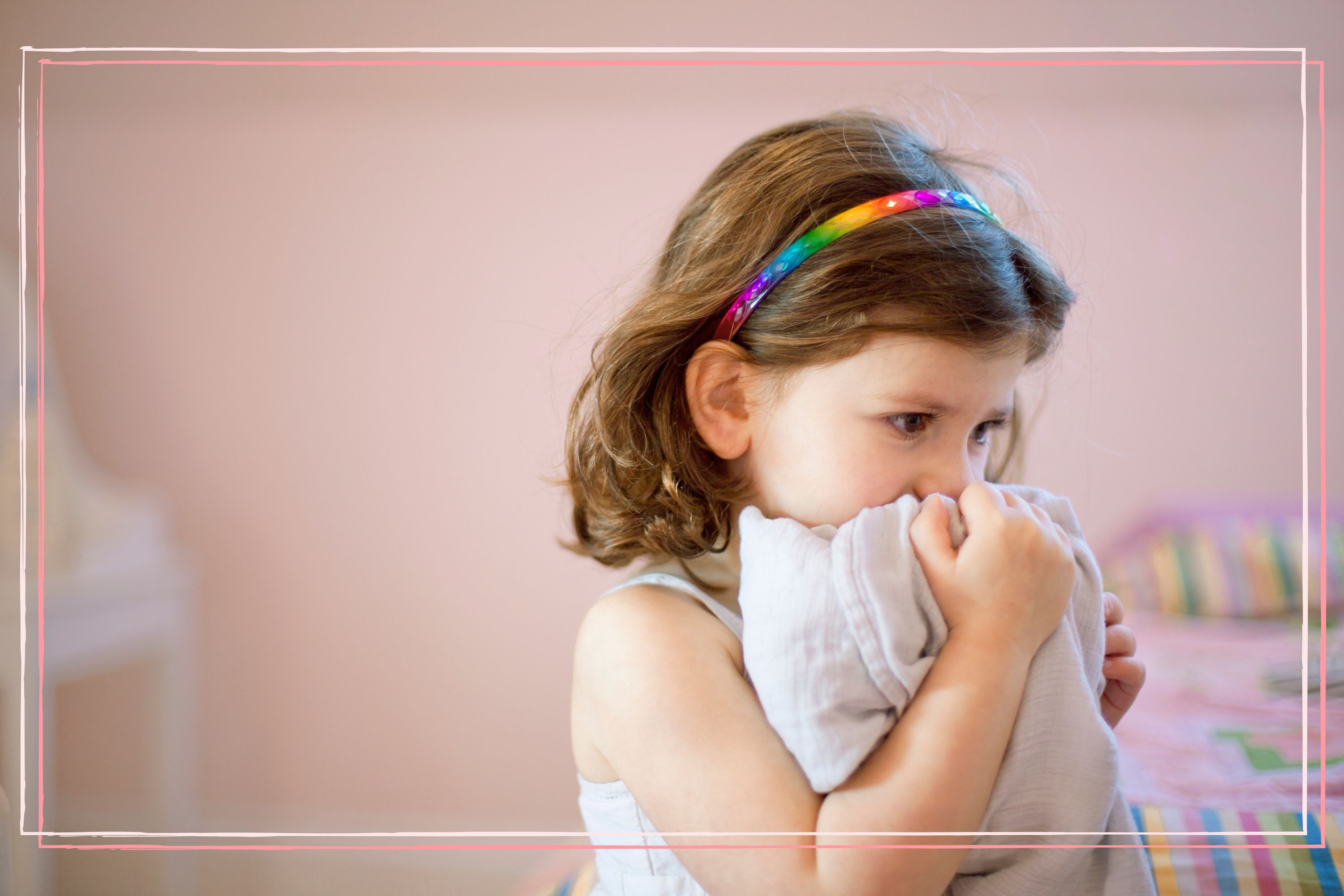 Raising an anxious kid? Here are 6 things that mental health experts want parents to know (and #1 could be a game changer)
Raising an anxious kid? Here are 6 things that mental health experts want parents to know (and #1 could be a game changer)If you have a child who often experiences feelings of anxiety, psychologists have explained some ways you can respond when they're struggling with their emotions.
By Ellie Hutchings
-
 Half of Gen Z say their parents 'don't take my mental health concerns seriously', research shows - here are 3 ways to help support older children
Half of Gen Z say their parents 'don't take my mental health concerns seriously', research shows - here are 3 ways to help support older childrenWith research showing that half of teens and young adults feel their parents don't take their mental health concerns seriously, we share how you can show your support.
By Ellie Hutchings
-
 12 signs of depression in children and what to do if you're worried, explained by experts
12 signs of depression in children and what to do if you're worried, explained by expertsKnowing the signs of depression in children is an important step towards being able to get professional help early, to avoid it having a long-term impact on a child's life.
By Ellie Hutchings
-
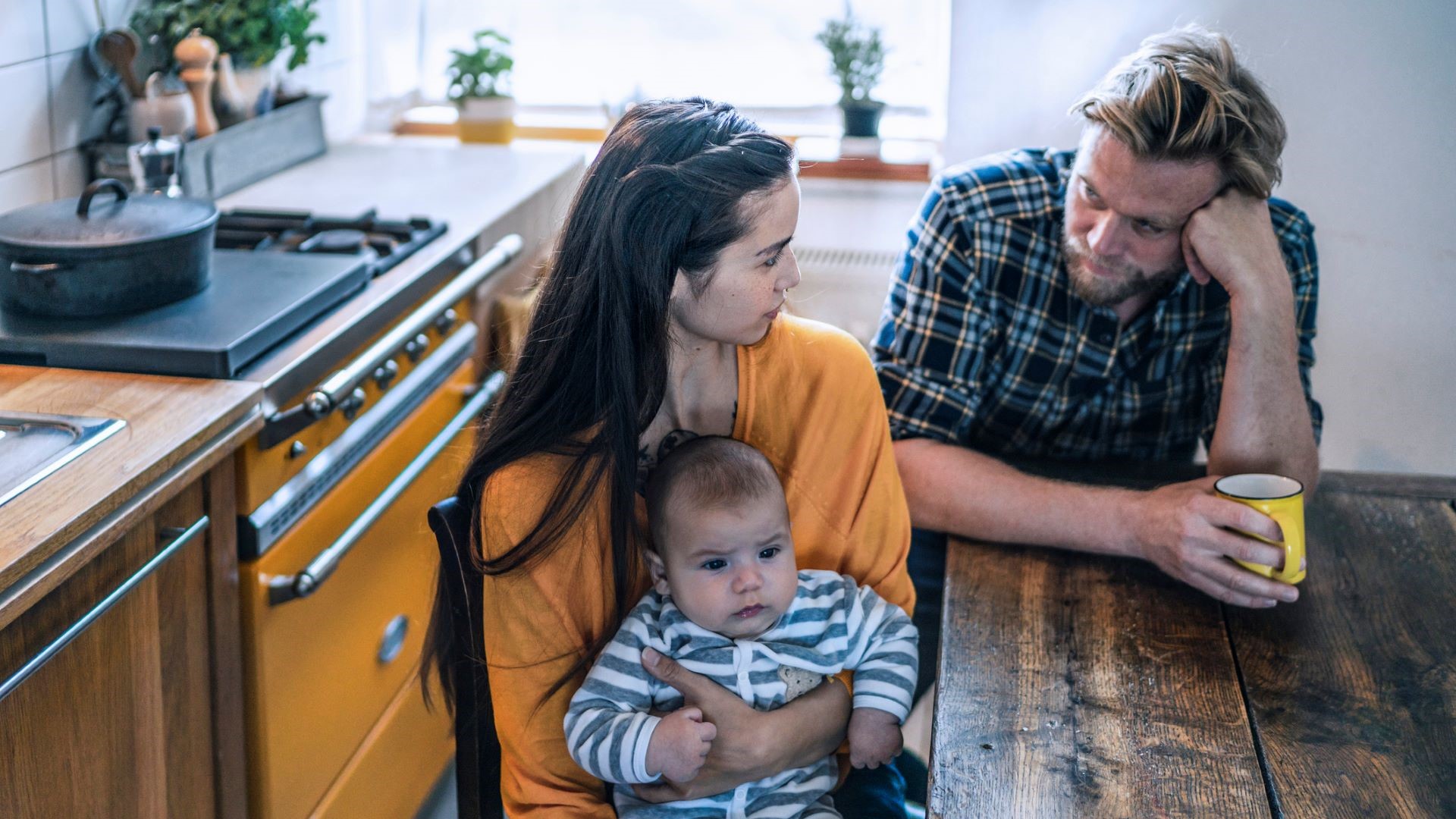 How to fix your marriage, while raising kids, without therapy - a psychotherapist unpicks the top three relationship issues
How to fix your marriage, while raising kids, without therapy - a psychotherapist unpicks the top three relationship issuesWhat to do when your parenting responsibilities mean your relationship energy is running on fumes.
By Joanne Lewsley
-
 "She eventually agreed" - I pushed my partner into having kids when she wasn't ready and here's why I really regret it
"She eventually agreed" - I pushed my partner into having kids when she wasn't ready and here's why I really regret itThere's never a 'right' time to have kids, especially when an age gap between a couple is involved. One dad shares his regret at asking his younger wife to start a family.
By Lucy Wigley
-
 What to expect when your teenager starts dating - plus, how to make sure they're safe and feel comfortable opening up to you about it
What to expect when your teenager starts dating - plus, how to make sure they're safe and feel comfortable opening up to you about itSo, your teenager has started dating and you have no idea what to expect. Here are all your questions answered, by a family expert and a psychologist.
By Ellie Hutchings
-
 Half of British parents are ‘too tired to have sex’ a study reveals, a relationship expert shares her tips (and it’s not just kids who should put down their screens)
Half of British parents are ‘too tired to have sex’ a study reveals, a relationship expert shares her tips (and it’s not just kids who should put down their screens)Here's how you can re-energise in the bedroom, according to a relationship expert
By Selina Maycock
-
 Sorry, parents - you might have 18 years of sleep deprivation ahead of you, as a new survey shows teens disrupt sleep just as much as toddlers do
Sorry, parents - you might have 18 years of sleep deprivation ahead of you, as a new survey shows teens disrupt sleep just as much as toddlers doA new survey has revealed that teens disrupt their parents' sleep just as much as toddlers do (and, sorry, it gets worse the more children you have).
By Ellie Hutchings